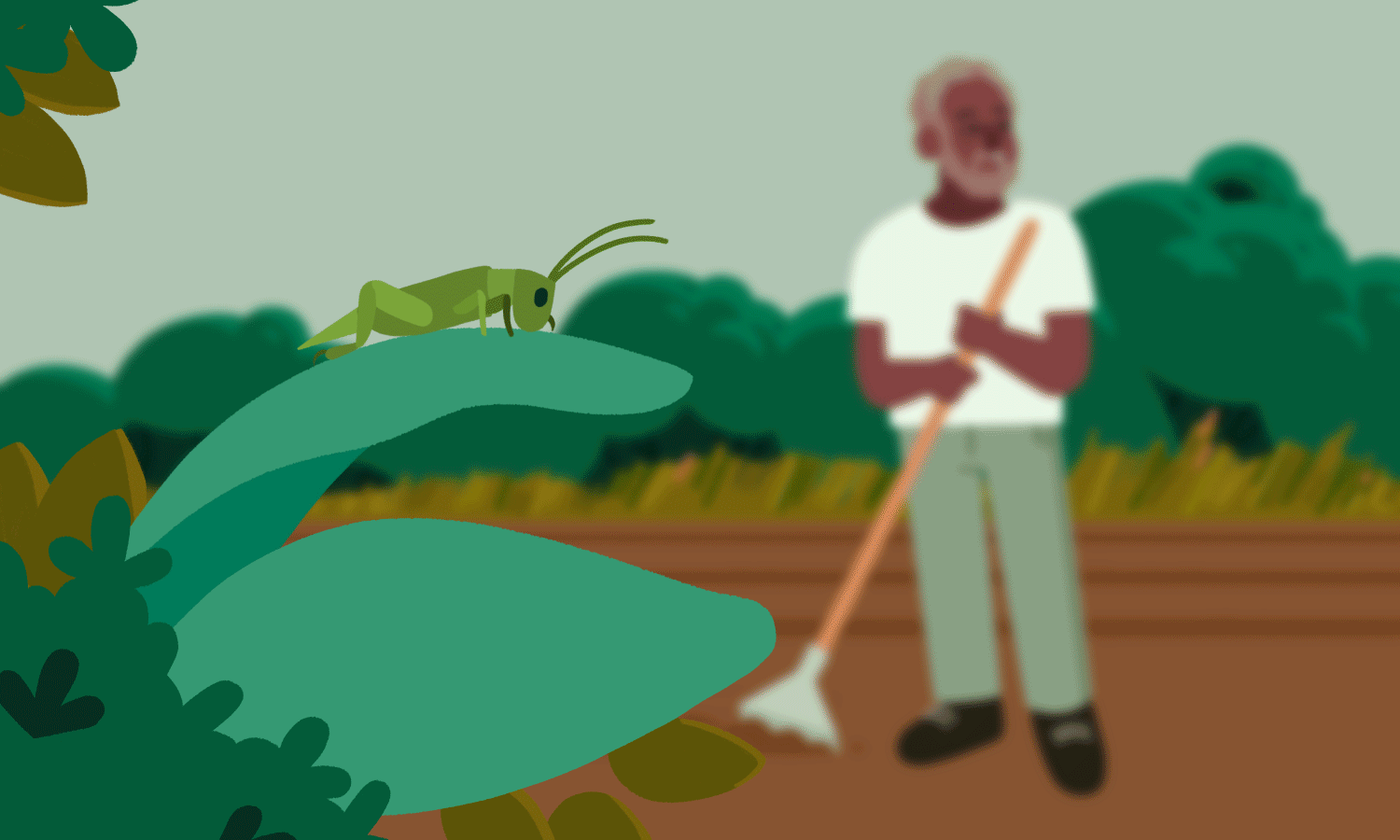At 3:30 p.m., Kurt Bellon packs up his small red firetruck — an authentic Kei Car imported from Japan — and heads out to his pop-up food stand, Izumi, next to the Francis Park Rockwell Beer Garden in St. Louis Hills. The truck is named after his mother’s hometown in Japan.
He parks Zumi, as he calls his truck, and assembles his tent. Although the truck is small, he unloads four coolers, a large tent, a foldable table, two boxes of Japanese snacks, a large banner that reads “onigiri” in simplified Japanese script and a curtain his mother made that reads “Izumi.”
Every Monday, Bellon begins his day around 4:30 a.m. in the kitchen of a local restaurant. He cooks and packages a variety of Japanese “konbini” — a shortened version of the word “convenience” — food for his pop-up event that evening.

As he sets up, he talks with passersby. This is where he thrives — engaging with customers and sharing his sense of home through nostalgic foods with the St. Louis community.
Bellon’s main fare is onigiri and sandos. Onigiri are rice balls filled with different savory foods, like pickled plum or fried chicken. Sandos, a shortened version of “sandwiches,” can be sweet or savory, with a variety of fillings such as katsu pork cutlets and eggplant, as well as whipped cream and fruit — one of his most popular orders.
These foods connect Bellon — who is half Japanese — with his heritage and childhood. He remembers his mother filling the triangle-shaped onigiri with the family’s leftovers.
“Homemade onigiri are usually the shape or size of your mother's hand or whoever makes it,” Bellon said. “And so it's a very, very personal thing.”

After setting up, Bellon pulls on a short firefighter's jacket his cousin sent him from Japan, paying homage to his truck's original use.
He takes out a citronella coil meant to keep the mosquitos away, explaining that the smell heightens this authentic feeling of home. His grandfather always had one lit for backyard barbecues in Japan.
His first customers arrive — old friends from high school. They order a curry sando and catch up on each other’s lives.
“I just get so much support from people,” Bellon said. “It’s just really nice when they come up and they’re like, ‘Oh, we’re so excited to see that you’re the one doing it.’ … I really do get powered up by serving folks in this wonderful little taste of Japan.”
As more customers arrive at the pop-up, Bellon shares how to properly open his homemade onigiri, which come with their own edible seaweed napkin. Next to a maneki-neko (a cat figurine with a waving arm), he displays other konbini, including shrimp-flavored chips, sesame crackers and Japanese strawberry milk.

As the smell of the citronella wafts through the air and the truck's banner flaps in the wind, Izumi channels a little pocket of Japan, thousands of miles away from the real thing.
Bellon said that by bringing traditional Japanese foods to St. Louis, he tries to “bottle up that experience of being able to visit Japan.” Home, he said, is not necessarily a physical place. But by sharing the Japanese foods he loves, he gets pretty close.
“To be able to transport not only the guests and the people I serve, but myself, in this really unique concept is a really special thing for me,” Bellon said. “It’s just a really magical thing that I get to do.”
This story was reported in partnership with NPR's Next Generation Radio — finding, coaching and training public media's next generation.







